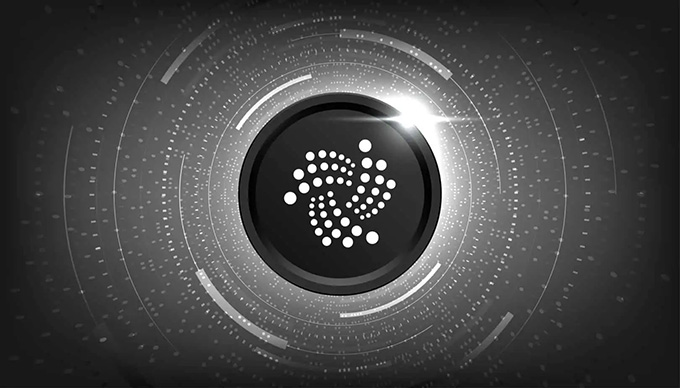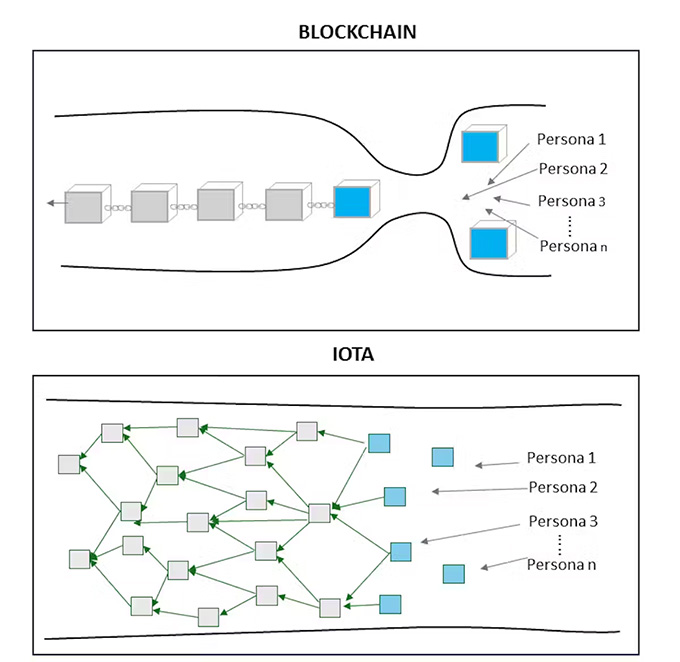
In an increasingly digitalized and interconnected world, concern about cybersecurity is growing among users.
Just days ago, the global collapse of Microsoft left millions of users without access to critical tools in thousands of public and private companies . This incident shows us the vulnerability of our systems and the urgent need to adopt secure solutions.
As a society, we are moving toward a reality where all of our electronic devices, both at home and at work, communicate with each other at no additional cost.
But we are increasingly concerned about protecting our personal data and the authenticity of the products we buy with a single click. How do we achieve this?
Different technological options are appearing on the market to address the problem and one of the most promising is IOTA .
What is IOTA?
Imagine that in your neighborhood all the neighbors help each other by doing small tasks. To keep track, they have a common notebook where they write down all the tasks that are done and who does them.
There is no boss or person in charge of the notebook. When someone finishes a task, he writes down what he has done and helps write down the tasks that other neighbors have done.
By working this way, they don’t need to pay anyone because everyone collaborates in the administration of the ledger and it is very difficult to cheat without others noticing. This is how IOTA , a distributed transaction ledger technology, works.
Does it work the same as blockchain ? No. Transactions on blockchain are grouped into blocks and added one after the other. Imagine a line of people waiting to enter a movie theater through a single door. They can only enter one at a time, showing their ticket at the entrance. So if one person is late, the entire line is late.
This makes the process slow and expensive, because it requires a lot of energy. IOTA, however, acts like a network. Imagine these same people accessing the cinema through many different doors at the same time, and each person helping two others to get in more quickly.
The system is faster this way. It does not consume as much time or energy . That is why IOTA is ideal for connecting many devices quickly and without additional costs and carrying out many transactions at the same time in the Internet of Things (IoT).

Graphic diagram of the operation of Blockchain and IOTA. Paula Lamo
Cybersecurity and product traceability
One of the biggest concerns with IoT is security. Every connected device is a potential access point for hackers . Using systems like IOTA, where each transaction must be validated by multiple nodes, makes it much harder for attackers to compromise the system .
And this is a very attractive feature for carrying out product traceability . Imagine that you buy a beef chop and you can track the information of the animal and the entire process that the chop has followed from the field to your table.
Or that you can find out, when you buy a bottle of wine, the location of the vine that produced it, what technologies and methods were used in its production, the time and type of barrel it was in, and even who and when bottled it and brought it to the store where you bought it.
With this system, the freshness, quality and designation of origin of the product can be guaranteed, fraud can be prevented and transparency can be improved. This is something that is increasingly demanded by users today.
European digital identity
The European Commission is working on implementing a secure digital identity for European citizens and has chosen IOTA for the European Blockchain Sandbox in 2024. What does this mean?
Think of your passport or ID card converted to a digital format that you can manage directly from your phone. Using IOTA we verify who you are without sharing all your personal information. How?
If, for example, you need to rent a car, with IOTA you would simply scan your phone and the rental system would quickly confirm your identity without revealing any additional details such as your personal address or date of birth.
New European regulations require countries to make digital wallets available to all European citizens by 2026. And with this technology, this digital identity can be developed while protecting the privacy and security of personal data .
What is the future?
The future of IOTA does not stop at IoT or digital identity. It can be implemented in a multitude of sectors.
In healthcare, for example, it could be used for the secure exchange of medical data between different hospitals to improve patient care.
And in logistics, complete traceability of shipments from the manufacturer to the final buyer could be ensured , reducing losses and fraud .
Author Bio: Paula Lamo Anuarbe is Academic Director of the Master’s Degree in Internet of Things at UNIR – International University of La Rioja
